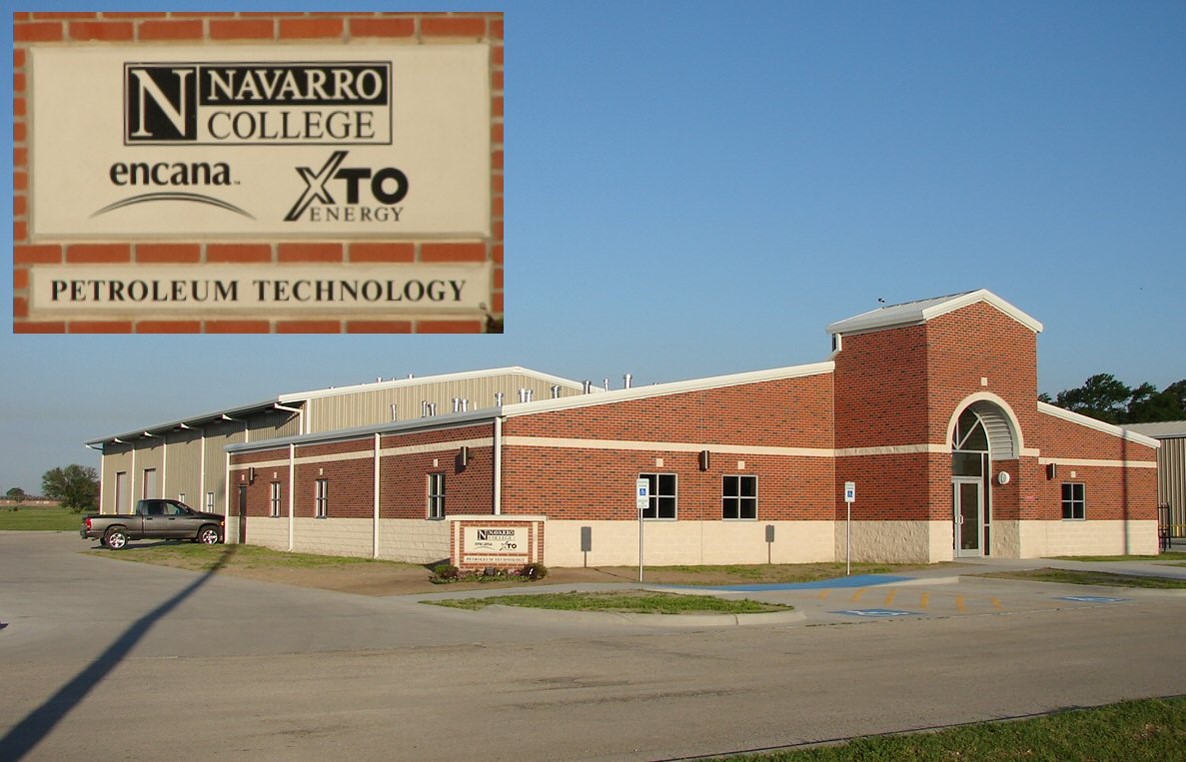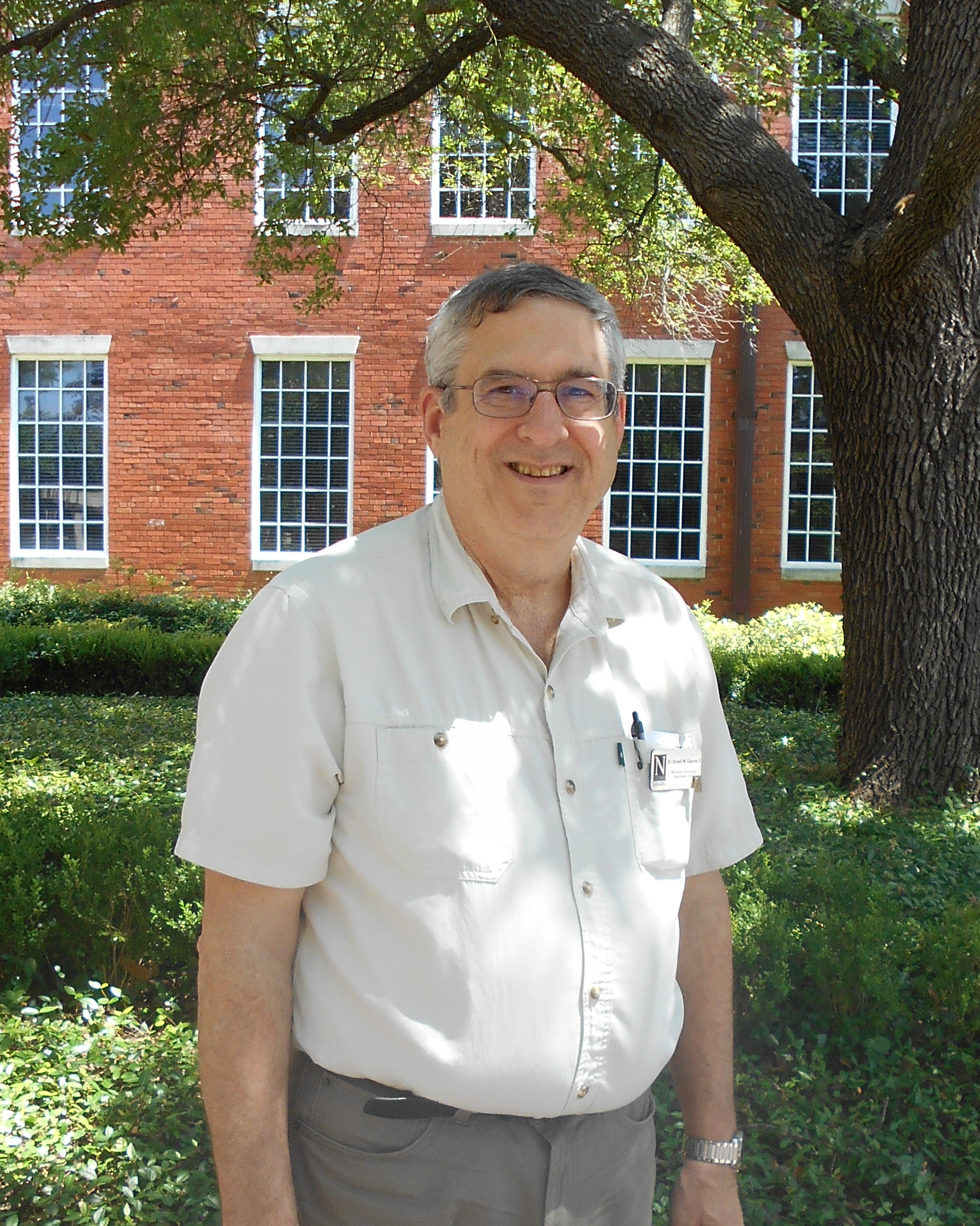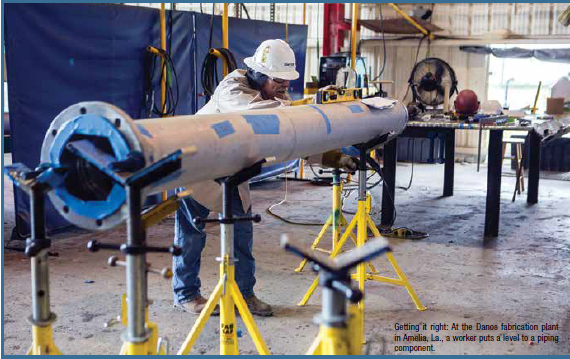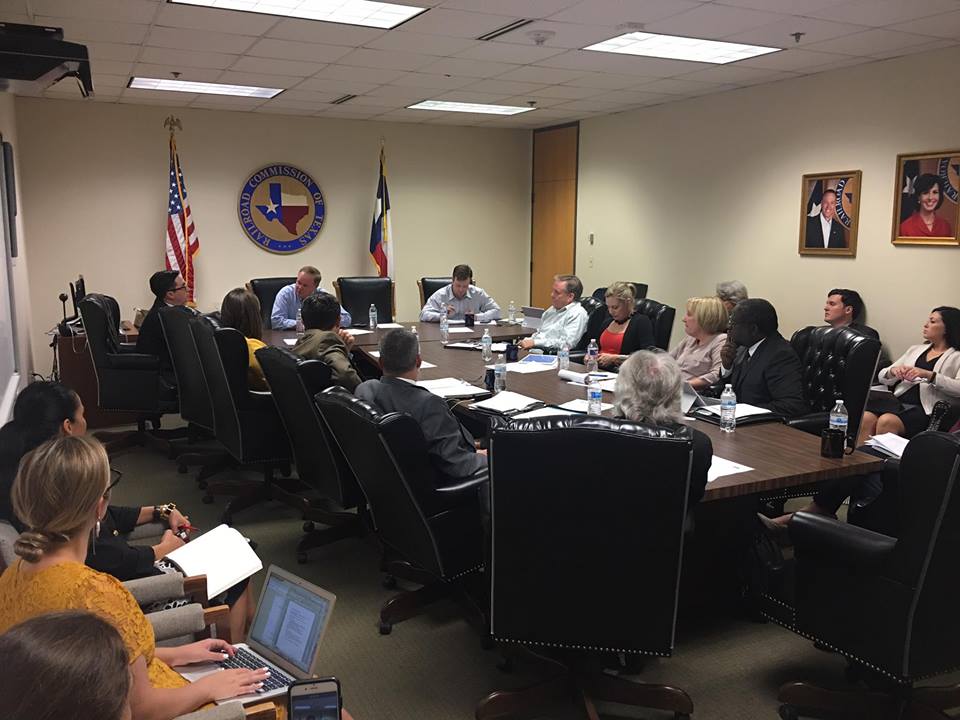More than ever, the success, and the future, of the Permian Basin depends on the region’s ability to hire the right people and in the necessary quantities. Being attractive enough to potential workers beyond New Mexico and Texas can mean less competition within the region for its limited pool of qualified workers, and thereby can reduce poaching and make every business more efficient and productive. Moreover, success here helps the nation and even the world. By Jesse Mullins
How important are jobs? How important is hiring? Consider what Texas Railroad Commissioner Wayne Christian had to say:
“The opportunity is such that—people don’t realize what the Good Lord has given us in the Permian Basin right now. There’s more job opportunity than we’ve ever looked at, so we are not equipped to furnish that much employment.”
There, in two sentences, is the blessing and the dilemma and the irony of our current circumstances.
Christian elaborates: “I tell people that back during World War II, we had the largest find in the state of Texas. The Good Lord gave us in deep East Texas the Kilgore Field. And we sent two-thirds of the oil through the Big Inch and the Little Inch [pipelines] over to [the Eastern Seaboard] to serve our troops in World War II, and helped end World World II. And you move forward to today, here the Good Lord has given West Texas the largest find of oil in the history of mankind, and we’re able to give energy security to the United States for the first time in decades. That’s national security. And that’s because of what we’ve done here in Texas at the beginning and end of almost a century.”
But it comes with a price tag, and that price tag is the monumental task of summoning a bigger-than-ever labor force to the rugged hinterlands where America’s trump card resides. Its Permian miracle. Its world changing asset.
Can it be done? How will it be done?
Taking the Initiative
If the governor’s office, and if the Texas Railroad Commission (TRC), have some perspective to be heard on this subject, then it probably comes in the form of an initiative spearheaded by TRC Commissioner Christian. The Energy Education and Workforce Development Initiative that he heads was the culmination of a lot of analysis on the issue of the day—that being workforce. Workforce in the Permian Basin. “The governor was kind enough to put me on an IOGCC (Interstate Oil and Gas Compact Commission), which are made up of [representatives from] the 37 states that are the producers ofoil and gas across the United States,” Christian said. “I had visited with some company owners here in Texas, and they expressed that their Number One problem, as far as taking advantage of this potential boon that we’re looking at, was the lack of labor. Of employees. From truck drivers right on through to petroleum engineers and all between and above. Every level.
“Every school we have in Texas is totally producing as many as they’re currently capable of producing,” Christian added. “So we have both a problem with the training resources, the number of employees, and then— going to IOGCC again, which is the national organization— I went to a breakout session and they expressed the problem they had across the United States was lack of employees at every level.”
Christian said that IOGCC commissioners articulated the issues that they felt were at the root of the problem. They were twofold. One was that parents have been dissuaded from thinking of technical training as anything other than an insult to their children. Said Christian: “I remember Ross Perot, back in Texas years ago, redid our education curricula. We’ve since tried to recover from it. [But] from that point, educators stopped counting any technical skills training in our high schools toward graduation points. And ever since… well… the Legislature has tried to come back and repair that as much as possible.”
But apparently the damage continues apace. The second reason, meanwhile, for shortfalls of employees in oil and gas has been the environmental movement, and its lobbying and disinformation and proselyzing efforts.
“The environmental movement has dissuaded a lot of our population, including our students, our young people, from desiring a career in petroleum. It’s been because people have not been given the full information on both sides of the issue. They’ve not been given the pluses—in addition to the minuses—where oil, gas, and coal are concerned. And there’s been a lack of scientifically-based data—true science—in the environmentalists’ arguments.
“So, between the destruction of technical training in our public schools, and the environmental movement’s lack of truth, I think we have a real problem in getting the labor we need to take advantage of what the Good Lord’s given us now in the state of Texas.
“And the trouble is, we’ve sat on our rears and many in the industry have not stepped to the table and gotten the message out there,” Christian said. “They’ve accepted the political correctness of the day and set back and kept silent or had stupid commercials on TV that talk about ‘Algae’s an answer for the future’ instead of what oil and gas have been, and are. And, unlike Jimmy Carter, who told us we had eight years left of oil, we now have around 500 years of oil and gas under current expectations, and that’s at current technology.”
What One College is Doing
Don Capone
Dr. Donald Capone is department chair for petroleum technology at Corsicana-based Navarro College, having returned there mere months ago after a career detour that took him into a Permian oil and gas role for the past several years.
Navarro has become something of a pipeline, funneling petroleum graduates—largely class intakes from eastern and southern Texas— to the Permian. To the Permian, that is, because the Permian has clearly been the place to be, where jobs are concerned.
Capone launched Navarro’s Petroleum Department in 2008 as the college wanted to respond to the tremendous activity then going on in the Barnett Shale.
“We started this program training lease operators specifically for natural gas production companies [because the Barnett was/is a natural gas play, primarily],” Capone said. “The two companies that helped kick off our program were XTO Energy and Encana. Now, around about the middle of 2009, when the Barnett Shale started to decline because gas prices started to decline, we began to shift our program over to oil production as well, so we began relationships with some additional companies,
notably Chevron and Marathon. Marathon was doing a lot of production down in the Eagle Ford, and Chevron was doing a lot of production in the Permian. We began putting interns for our lease operator candidates into the Permian Basin back as early as 2010. Now, around that same time, we realized that our program was also a good training ground for potential employees for natural gas
processing plants and for LNG recovery plants using either propane refrigeration or some other cryo technique.
“So we very quickly, around that same time frame, found that we were placing a lot of candidates into natural gas processing plants, specifically with XTO Energy and then later on with Endeavor. So that’s been an emphasis too. That’s our program in a nutshell. [Educating] operating company, entry-level positions as lease operators for oil and gas production, but also as natural gas and/or liquids recovery plant operators. We’ve got a handful of pipeline operators since 2008, but our main focus is entry-level lease operator and plant operator positions.
“Now, what we have not done on purpose is we don’t place a lot of emphasis on training students for drilling and completion,” Capone said. “That was a conscious choice on my part way back in ‘08 partly because that’s where the biggest short-term impact of the boom and bust cycle seems to hit. It’s with the service companies and the drilling and completion companies. So we made a conscious effort to target those lease operator and plant operator positions, because once those wells are on production, they’re on production for an extended length of time usually measured in decades in many cases.”
 The Petroleum Department of Navarro College is situated at the school’s main campus in Corsicana, Texas. Although the college lies in East Texas, many of its petroleum graduates end up in the Permian Basin of West Texas.
The Petroleum Department of Navarro College is situated at the school’s main campus in Corsicana, Texas. Although the college lies in East Texas, many of its petroleum graduates end up in the Permian Basin of West Texas.
Cyclical Developments
NES Talent, which in April opened an office in the Midland/Odessa area, is a specialist oilfield recruitment business that has a presence around the globe. NES Global Talent functions within the operation sectors of oil and gas, covering what it describes as a “full suite of staffing services, from drilling, completions, and well supervision personnel to oilfield services personnel such as operators, power engineers, and construction personnel.”
James Bradley
James Bradley, based in NES Talent’s Houston Office, is the corporation’s director of U.S. onshore business. He spoke to PB Oil and Gas Magazine about the corporation’s entry into the Basin and its
assessment of the job market here.
Said Bradley: “I think the Midland/ Odessa area or West Texas, specifically, sometimes gets a little bit of a bad rap. I think it’s just a legacy that [upheavals] can be in cycles. Some people [therefore] have
a bit of hesitation about wanting to come out to West Texas, or maybe they’re just not educated about the developments that are going on here at the moment. I, myself, was personally surprised when I first came out here—surprised that there are lots of now positive steps to support families. There’s a focus on trying to improve health care and schooling for longer-term employees in the region. There seems to be a genuine commitment to try to build more housing, which has always been a challenge
in the boom times, when, obviously, the pricing shoots through the roof. I think there are more hotels as well that are being built. Again, there’s more opportunities for people to actually have lodgings when they’re here as opposed to sleeping in the truck or having a trailer. That makes for more stability.
“Equally, I think there’s been more investment from actual clients,” Bradley said. “We’ve seen companies like Oxy, Anadarko, Pioneer, Apache, all building new facilities, better environments for people to work in. There’s much focus on the work/life/home. If you go to a lot of these offices nowadays, you’ll see workout areas, you’ll see better facilities [in general]. I think there’s been a real development. I was in the oil and gas conference at the Horseshoe Arena [in Midland] at the start of the year and some of the major companies were talking about, from a leadership perspective, how do they make their resources above ground in Midland match the resources below the grounds. So
I think there’s a social responsibility now of organizations, where they understand the importance of quality of life.”
Musical Chairs
Everyone needs friends in low places. If by “low” we mean southerly, and if by that we mean, well, Houston. The Basin has a friend in Houston. His name is Carl McCutcheon, and one of the things he says is, “One of the things I do is help people in Houston to relocate to the Permian Basin.”
It’s a job that has its challenges, but it also has its rewards. Including rewards for the relocated executives. As McCutcheon, founder and CEO of MCF Associates (a Houston-based oilfield executive recruitment firm), observes, “It’s hard to recruit people to Houston but once they’re here they don’t want to leave. The same thing’s pretty much true for Midland.”
The labor market in the Basin is tight, he says, and because it is, the “game” can be one of musical chairs. “If you take an executive out of one place you’ve created an opening that someone else needs to fill. Unless your bringing in talent from outside the area, then it’s hard to satisfy everybody’s objectives.”
Baker-Hughes employee Russell Keaton speaks as a guest lecturer in a corrosion class at Navarro College
Railroad Commissioner Wayne Christian sits at the head of the table during a meeting of the Energy Education and Workforce Development Initiative that he chairs. Seated two places to Christian’s left is PBPA President Ben Shepperd.
MCF Associates doesn’t recruit all levels of workers— nor even do they recruit all levels of executives. They go for pretty much the top tier. “We recruit senior executives [board bembers, CEOs, CFOs, COOs, and other senior executives] and senior technical executives [geologists, geophysicists, drilling engineers, petroleum engineers, etc.] for oil and gas companies, oilfield services companies, and related companies,” he said.
McCutcheon has himself been in the energy business for four decades, most of that with big companies.
“I’ve been with the Williams Companies out of Tulsa, Enron, Koch Industries. And I’ve been in the executive search business for 10 years with a few of the large search firms. I started my own search firm about two years ago.”
He tells a story of how critical—and how intensive— executive search can be, and needs to be.
“We were contacted by a medium-sized oil field services company in the Midland/Odessa area—I can’t name them—and they were looking for a CEO to come in and help them grow their company,” McCutcheon said. “I did a national search for them and used a combination of sources and standard tools: advertising, going through our internal database, using our industry knowledge, networking, advertising. We ran a series of ads. We had 30,000 [!] people click on our ads. And, of that, we ended up with 140 resumes and narrowed it down to one person that our client really liked. And, they hired him. The interesting part was, he came from— I don’t know how far away it is, probably 1,000 miles—
from North Dakota. To find the ideal person you really need to do a national search. I’ve done search work all way from Nigeria to Bakersfield. In a tight labor market, that’s what it can take.”
“Full” Employment is 96% Employment
In his line of work, McCutcheon has noticed some constants.
“Milton Friedman, the [late] economist, said that “full employment is around four percent unemployment.” Full employment is never 100 percent employment. That’s because you have a certain percentage of people moving around, switching between jobs, or looking for jobs, or whatever. Well, right now both Odessa and Midland have unemployment figures below 3 percent. Midland’s is at 2.1 percent and Odessa’s is at 2.8 percent. It’s a very competitive market out there.
“If companies are going to succeed, another thing that’s important is that there’s huge amounts of capital going into the Permian Basin. Exxon announced the other day that they’re going to spend, I think, $50B in the Permian. It’s a massive amount of capital but it’s also going to require a lot of people to deploy that capital. Then you have other big companies out there like Pioneer and Occidental have huge acreage positions. So they’re going to need a lot of talent to fully develop those acreage positions. I think, from an employer’s standpoint, it’s really important to have competitive compensation packages in a tight labor market. And you have to have bonus programs that are aligned with the objectives of the company. It’s also important when you’re recruiting people that they’re compatible with the culture of your company. Another thing that’s critical when you’re trying to recruit people, is you have to move quickly. Because many times a candidate will receive multiple
offers. If the employer doesn’t move quickly to close on them they may lose them to a competitor and have to start over again.
“Another key thing I’m starting to see more and more is companies are putting in place retention programs to reduce turnover,” he said. “Because they’re losing their key people to competitors or other companies. It’s important to have a good, solid retention program. Those can be things like stock plans or bonus programs that are tied to how long you’re there. So you have stay there for a while to fully be paid out on the bonus programs.
“Another key issue that we’re running into is housing. Especially if you’re bringing in somebody from out of the state. It’s hard to buy houses. We had one candidate spend several months looking for a house out there and got close a couple of times but for one reason or another the deals didn’t work out. Housing’s a big concern and hotels are just out of sight. In fact, I never thought I would say, it was funny, but I was in Midland, I guess about three months ago, and then later that week I flew to New York and it was actually cheaper in New York than it was in Midland.”
So much for local conditions. TRC Commissioner Christian summed up the wider-world considerations that overlay everything we feel here in the Basin.
“Pipelines are sitting there,” Christian said. “We need those as quickly as possible. They’ve built two new refineries. We’ve got three LNG facilities currently that we are trying to break ground on and get in operation. We’ve got the plastics plant that Exxon is doing down at Corpus. There’s the expansion of both Corpus and Houston ship channel. And you can just go on and on about the opportunities just in relation to Midland/Odessa.
“Then you back up and look at the opening of new depths in the Haynesville Shale and the Eagle Ford
Shale of natural gas. And we’re moving into that. So all over the state of Texas we have expansion of the industry and these are longer, thank goodness, longer plays. So we have unbelievable resources that we’ve been afforded and I just want to be responsible in the area of not missing it.”
A Sobering Sidelight
He went further.
“Let me give you another sobering problem that our task force has identified that we’re trying to answer,” Christian said. “One of the biggest problems when you have with workers in the field, across the state—and I was not aware that it was as significant as it is—is the drug crisis. I was in a meeting a month ago with a lot of business leaders and this was brought out. I know we have the opioid crisis nationwide that President Donald Trump has talked about. I’ve talked with Secretary Perry about three weeks ago on the drug problem, he’s agreed to help us out. But [the upshot is that], based on what I learned from the companies I talked to, they’re losing about 20 percent of their workers, annually [a turnover rate of 20 percent a year], and some are losing as much as 100 percent of their workers annually, because of drugs. Drugs are a significant, significant problem. I didn’t realize
how severe it was. You’re talking about 100 percent turnover out there of these companies and 20 percent as an average. That’s huge. And that’s on top of, we can’t get enough employees to start with, so even when we get them now we’re losing 20 percent or more to drug problems. So there are some situations we’re trying to address of lifestyle education to these young workers that we send out there, and that’s a daunting problem, the drug problem.”
Readers: In this Part 1 installment, we have presented mainly the challenges, and while we have ventured suggestions about the solutions, our Part 2 will be more about solutions than we’ve been able to convey in this introductory Part 1. Watch for an interesting wrap-up on the prospects confronting us in the Basin’s biggest challenge.















